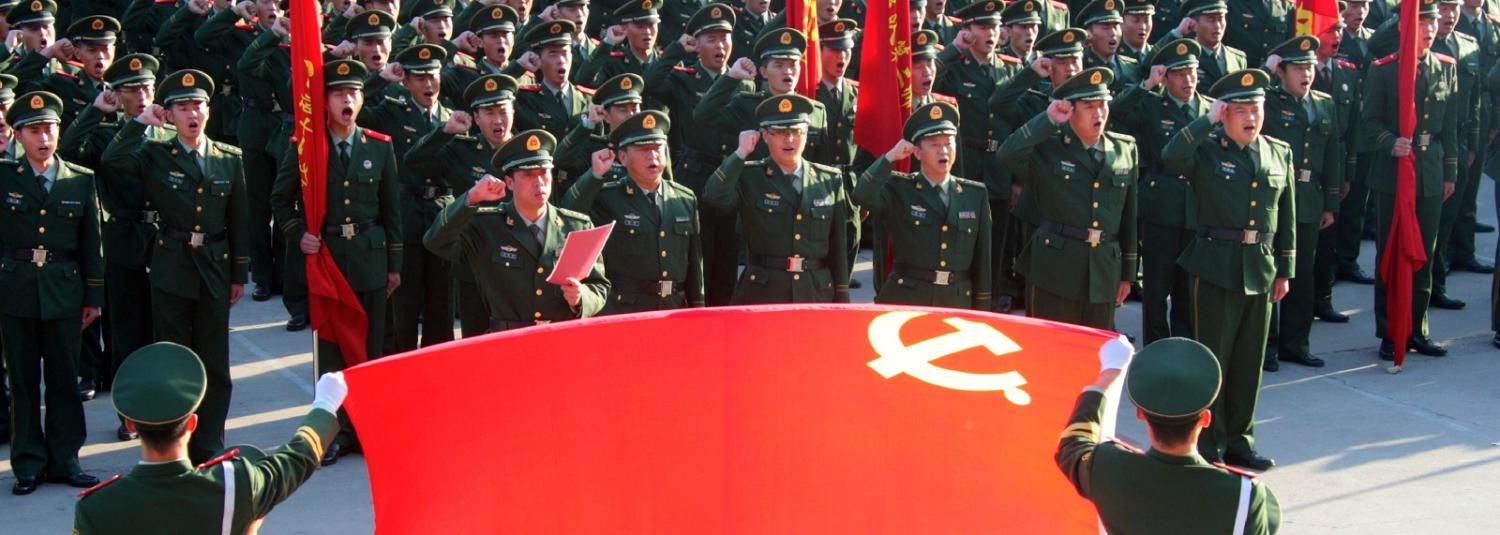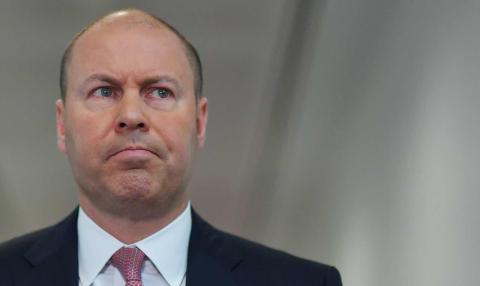Last night ABC TV aired a Four Corners/Fairfax Media investigation into China’s power and influence in Australia that promised to uncover 'how China's Communist Party is secretly infiltrating Australia'. The program traced the stories of various individuals and their ties to China and concluded we must all be more careful of 'covert Chinese actions taking place on Australian soil'. However the investigation did not convincingly demonstrate that the Chinese Party-state is orchestrating a coherent, strategic effort to infiltrate and influence Australian policy.
To recap, the program examined a number of cases. For example, we heard the story of Tony Chang, a Chinese student in Brisbane whose parents back in China had been ‘taken to tea’ and warned that Tony should end his public pro-democracy activities in Australia. We met Lu Lipin, President of the Chinese Students and Scholars Association at the University of Canberra, who said the Chinese embassy provided supplies (and legal advice in case of conflicts with the police) for rallies such as when Premier Li Keqiang visited Australia. Ms Lu said that she would feel a responsibility to report any Chinese students organising, for example, a human rights demonstration, 'to keep all the students safe, and for China as well'. We were told the stories of billionaires Dr Chau Chak-wing and Mr Huang Xiangmo, the large sums they had donated to Australian political parties and other organisations, and their high-level Party connections. We heard Mr Huang say it was important for overseas Chinese to support policies that were favourable to China. Mr Huang also asked Labor Senator Sam Dastyari for help with his Australian citizenship application. We heard that Sheri Yan was jailed for corruption - bribing a UN official - and her husband Roger Uren is under investigation for allegedly stealing classified government documents.
These stories, the investigation concluded, demonstrate that China is trying to silence opposition and dissent in Australia, that China is interfering in Australian sovereignty, and that China is trying to change the Australian policy discourse.
What the program perhaps did not have the time or scope to explore was the important fact that the Chinese Party-state is not a single, monolithic, coherent puppet-master. Further, Chinese people - even those with Party connections - are not simply tools of this putative communist behemoth. It is beyond the scope of this post to counter every claim in the Four Corners program, but I would like to sketch out some of the oversights and misperceptions to illustrate the broader point.
It is certainly true that the Chinese government does not like its citizens overseas speaking out against it. Many Chinese individuals, including some with no formal Party connections, also disapprove of such public dissent. This is founded on the combination of two factors: firstly, the implicit social contract in China, which holds that the Chinese public agrees to avoid involvement in politics in exchange for an improved standard of living, and a restoration of their sense of national pride. The second aspect is the broadly shared understanding that once one is Chinese, one is always Chinese. One cannot ever become un-Chinese. Likewise, no non-Chinese can ever really become Chinese. Chinese-ness is viewed as innate, essential, and eternal. And being Chinese means loving China like one would love one’s own father, and not, especially not in public, engaging in criticism despite being very aware of flaws and imperfections. Therefore, the rules that govern acceptable behaviour at home, namely, 'Don’t get involved in political criticism or agitation', apply equally - if not more so - abroad.
It's important to examine Lu Lipin’s views through this prism. Her actions reflect the genuine beliefs of someone who has grown up in the patriotic education campaign of post-1989 China. These beliefs may seem unpalatable to those of us who have grown up in an environment where political engagement is seen as a fundamental right, and one’s freedom to critique and agitate is considered a cornerstone of a free society. However, to most Chinese, this is not how things work, and most Chinese accept that. One could argue that when Chinese are studying and living in this country, they should be aware of and respect our society's tolerance and support political engagement. But even if one accepts that position, it's still a big leap to point to the actions of some Chinese students who are acting as if they were still in China and present this as proof of a concerted and co-ordinated effort by the Party-state to secretly inflitrate Australia.
It is also true that Chinese billionaires like to throw money around, including at Australian politicians. And chances are, many of these billionaires are Party members. In China, that’s how you get ahead. Does this mean these individuals are Communist Party stooges? Perhaps, but not necessarily. As former Ambassador Geoff Raby pointed out in the program, it is fairly standard practice for wealthy Chinese people to use their money for building connections and prestige. In China, the enormously complicated system of networks, obligations and reciprocity is known as guanxi. See this excellent book by Mayfair Yang for an explanation of how guanxi works. Here in Australia, a lot of what goes on as part of guanxi would be considered corruption. Indeed, in President Xi Jinping’s anti-corruption crackdown, a lot of what has been going on as guanxi is now being (selectively) relabeled as corruption. When I was teaching at a Chinese university at Beijing, I was offered gifts and money in red envelopes by students’ parents at exam time to help me in my grading efforts (and no, I didn’t).
Gift giving with an expectation of some kind of reciprocation is, or at least has been, more or less standard practice in China. It does not automatically follow that the reciprocation expected when political donations are made in Australia is a change in the direction of Australia’s foreign policy. Mr Huang did indeed rescind his offer to donate $400,000 to the ALP after Stephen Conroy said Labor would take a tougher stand on the South China Sea. Did he do that because the Party told him to? Or could it also be because Huang’s own beliefs are in line with the official Chinese position, and he decided not to give his money to an organisation that opposed his beliefs? In general, given the way networks and contacts work in China, Party connections are not necessarily a cause for alarm. However Mr Huang’s high-level connection with the Australian Council for the Peaceful Reunification of China, and his remarks about Chinese politicians in Australia supporting Chinese policy, are worth further exploration.
The observation made in the program that it is unclear where these billionaires got their money, and the implication that they are state-sponsored, also demonstrates a lack of understanding of how China works. Mr Huang was noted to be a rural real estate developer. He is now very rich. The rest is murky. Chances are his wealth is not because of Party sponsorship.
The program was right to alert us to the potential risks of international political donations being tied to expectations of influence. But it did not make any clear links between the actions of the Chinese featured in the program and policy change or influence in Australia. It is the responsibility of the defence and intelligence community to be aware of potential overseas influence in Australia’s politics. It is the responsibility of Australian politicians to be ethical and transparent, and not naive about where their money comes from and what is expected in return. But it is the responsibility of us all to be well-informed, and realistic and moderate about the conclusions we reach.

